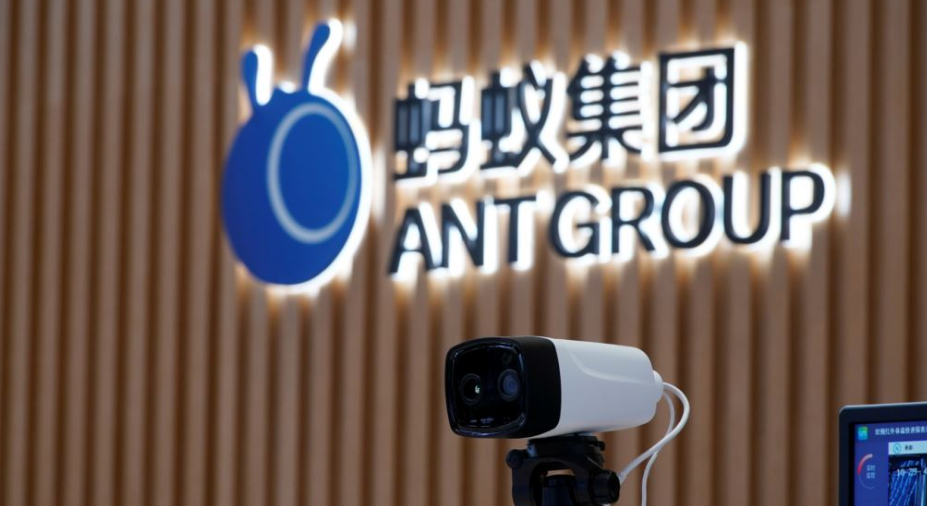Editor's note: Matteo Giovannini is a finance professional at the Industrial and Commercial Bank of China in Beijing and a member of the China Task Force at the Italian Ministry of Economic Development. The article reflects the author's views, and not necessarily those of CGTN.
There are moments in history when great achievements are accomplished as a result of years of hard work and meticulous attention to detail and become milestones for a country's path to development.
November 5 could have represented one of those moments since Ant Group was set to pull off the largest initial public offering (IPO) in history by going public on the Hong Kong Stock Exchange, with Shanghai's listing date to be set, in a dual listing that was set to raise $34.5 billion leading to a company valuation of more than $313 billion.
Unexpectedly, on Tuesday the two stock exchanges issued a statement declaring that Ant Group's IPO has been suspended without providing a timeline due to "significant issues such as the changes in financial technology regulatory environment that may result in the company not meeting the conditions for listing or meeting the information disclosure requirements."
The decision followed a secretive meeting held on Monday between officials of People's Bank of China (PBOC), China Banking and Insurance Regulatory Commission (CBIRC), China Security Regulatory Commission (CSRC) and State Administration of Foreign Exchange (SAFE) with Ant Group's top executives.
What everyone wants to know now is the reason behind the abrupt change in course.
The majority of observers point to last week's intervention by Alibaba's founder Jack Ma at the Bund Summit in Shanghai as the reason that's led to the suspension, where he made accusations that the financial and regulatory system suffocates innovation and referred to the global system as "an old men's club."
From his perspective, banks in China still operate through a very old school business model that require the provision of collateral and guarantees in order to issue a loan, while fintech companies provide inclusiveness and universality serving SMEs and individuals in a more accurate way through the vast amount of big data that tech companies manage.
In my view, the highly critical speech represent the current environmental context in China's financial market where a traditional form of banking, largely dominated by state-owned enterprises, is trying to coexist with rising challenger banks, backed by big tech firms.
Everyone agrees on the fact that tech companies turned financial services firms have made a great contribution in providing a wide range of financial services especially in emerging markets and among low-income people and in rural areas while improving the level of efficiency and reducing operating costs.

The headquarters of Ant Group. /Reuters
The headquarters of Ant Group. /Reuters
However, it is also true that the rapid growth of challenger banks has been highly favored by the lack of a well-rounded regulatory environment that has led to an uneven playing field, for example, exempting fintech firms from adhering to the same rigorous oversight of normal banks such as reserve requirements and leveraging ratios.
I believe that tech companies that make the decision to apply for a banking license and operate offering financial services on the public market must be considered in all respects as banks and therefore subject to the same regulatory requirements applicable to banks and other financial institutions.
In this sense, I think that considering the regulator's decision to suspend the IPO represents a wise decision to accelerate an already ongoing revision of the industry regulation on micro lending that aims at adjusting a legal framework in a more complex and extensive way.
In addition, by suspending the blockbuster IPO, Chinese authorities may have considered the social effects that an unregulated fintech sector that continue to grow exponentially at the expenses of the incumbents could have provoked on a domestic financial market that still formally relies on a state-owned banking system that employs a large portion of the country's population.
The transition to a new form of banking is definitely welcome and even supported by Chinese leadership and regulators but it has to be addressed in a progressive way by setting up a system of checks and balances that covers the gray areas where currently fintech firms navigate, responds to the request of stakeholders to regulate a fintech sector that poses a growing systemic risk and protect the interest of the entire financial system over the interest of a company and of its shareholders.
(If you want to contribute and have specific expertise, please contact us at opinions@cgtn.com.)